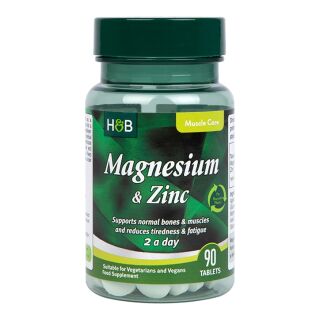Mental health. How do we define it?
Mental health is an integral part of our overall health. There can be no health without proper care of the mind and soul. The World Health Organization defines health as "a state of complete physical, mental and social well-being, not merely the absence of disease or disability". In other words, not being sick does not make us healthy, as health is much more than the absence of disease. At the same time, the definition of mental health includes 'the ability of an individual to cope effectively with stress, to be productive, aware of his or her abilities and able to contribute socially'. However, mental disorders are growing rapidly these days, with the mentally healthy population declining significantly.
Mental disorder. The numbers speak for themselves.
Mental disorders include a very wide range of disorders, such as: anxiety disorders (generalized anxiety disorder, panic disorder, etc.), depression, bipolar disorder, post-traumatic stress disorder, schizophrenia, eating disorders, and neurodevelopmental disorders.
- 1 in 8 people worldwide suffer from a mental disorder.
- In 2019, the number of people suffering from anxiety disorders reached 301 million.
- In the same year, depression recorded a score of 280 million people worldwide.
- Bipolar disorder and post-traumatic stress disorder touched over 50 million people.
And if you do the addition and include the rest of the existing mental disorders, we almost reach 600 million people worldwide. And bear in mind that these data reflects the years before the pandemic and Covid-19.
Mental Health. How do we take care of it?
Mental health care - as we have said many times - is a pillar of our overall wellbeing. We've discussed in a
previous article where we talked at length about the intense stress we experience within our daily lives and mentioned natural ways we can incorporate to help manage it effectively. Yes, I know, it's not easy to manage. But it is achievable and for each of us choosing to work with a mental health professional who is right for us, incorporating exercise in the form that we enjoy and taking care of our eating habits are integral parts of this process. And yes, it is more than worth it!
Magnesium & Mental Health. How are they connected?
Magnesium is the 7th most abundant mineral, with a major role in over 600 enzyme reactions, which have to do with basic vital functions of our body, such as regulating blood pressure, communication between cells in the nervous system, and smooth muscle function. Its uses are spread over a wide range of functions, as it seems to be involved in almost every reaction in the human body that has to do with energy production, hence..the brain, which produces huge amounts of energy to support the daily demanding functions of everyday life.
Known as the "metal of calm", it is an important co-factor (
a necessary component of a chemical reaction) in most reactions of the nervous system, as well as a key macro-metal, with a crucial effect on fluid balance and hydration of the tissues of the human body. In addition, another mechanism in brain function has been suggested, as there is evidence that it protects the blood-brain barrier from inflammation and oxidative stress. Bearing in mind that our brain is almost 85% water and the nervous system is constantly alert, we understand that magnesium sufficiency is extremely important for the smooth functioning of the nervous system and brain function. In addition, its role in regulating blood pressure makes it a component of great importance for the smooth functioning of the heart, which exerts a direct effect on brain function. However, studies show that more than 50% of the population in Europe does not consume enough
magnesium in their diet, and as a result, the percentage of the magnesium-deficient population is increasing.
Extra info.
Magnesium deficiency is not reflected in blood tests, as serum
magnesium reflects only 1% of the total magnesium in the blood. A blood test will only show us severe deficiency.
Magnesium deficiency symptoms.
Magnesium deficiency symptoms are the most direct and most appropriate way to suspect that there may be a
magnesium deficiency, since as mentioned, a blood test is an inaccurate way of indicating a deficiency. Symptoms such as frequent headaches, fatigue, severe period pains, sleep problems, frequent muscle cramps and severe anxiety are the most commonly reported symptoms of deficiency that need to be observed in order to consider the possibility of
magnesium supplementation. In addition, scientific evidence supports its role in preventing the onset of chronic neurodegenerative diseases such as dementia, as well as reducing the likelihood of anxiety disorders and depression.
The forms of
magnesium found in dietary supplements vary, as it is perhaps the most versatile metal, due to its multidimensional nature. Its supplementation is used in the spectrum of daily stress management, with more immediate results in people who are deficient, in better management of frequent mood swings, in improving symptoms of premenstrual syndrome as well as in the effective management of insomnia.
Top tip: The use of a
magnesium supplement should be done
consistently - as with all dietary supplements
- for 3-4 months, to see if the form you have chosen is right for you.
In case of medication, presence of medical condition, pregnancy or breastfeeding, the approval of your GP is essential.
In conclusion
The rise in mental disorder incidence, intense stress and frequent nutritional deficiencies have turned us to the search for natural products that can be an important part of improving our quality of life.
Magnesium, a vital mineral for the functioning of the human body, appears to play a key role in maintaining healthy stress levels, contributing to proper neuronal communication and hundreds of functions that support brain health. Holland & Barrett is here for you, providing multiple forms of
magnesium supplements, with our expertly-trained stuff, guiding you to the most appropriate choice for you.
Take care of your brain and your brain will take care of you back!
Scientific References
Boyle, N. B., Lawton, C., & Dye, L. (2017). The effects of magnesium supplementation on subjective anxiety and stress—a systematic review. Nutrients, 9(5), 429.
Chen, F., Wang, J., Cheng, Y., Li, R., Wang, Y., Chen, Y., ... & Tucker, K. L. (2024). Magnesium and Cognitive Health in Adults: A Systematic Review and Meta-Analysis. Advances in Nutrition, 100272.
Derbyshire, E. (2018). Brain health across the lifespan: a systematic review on the role of omega-3 fatty acid supplements. Nutrients, 10(8), 1094.
Noah, L., Dye, L., Bois De Fer, B., Mazur, A., Pickering, G., & Pouteau, E. (2021). Effect of magnesium and vitamin B6 supplementation on mental health and quality of life in stressed healthy adults: Post‐hoc analysis of a randomised controlled trial. Stress and Health, 37(5), 1000-1009.
Pickering, G., Mazur, A., Trousselard, M., Bienkowski, P., Yaltsewa, N., Amessou, M., ... & Pouteau, E. (2020). Magnesium status and stress: the vicious circle concept revisited. Nutrients, 12(12), 3672.
WHO, World Health Organization




















